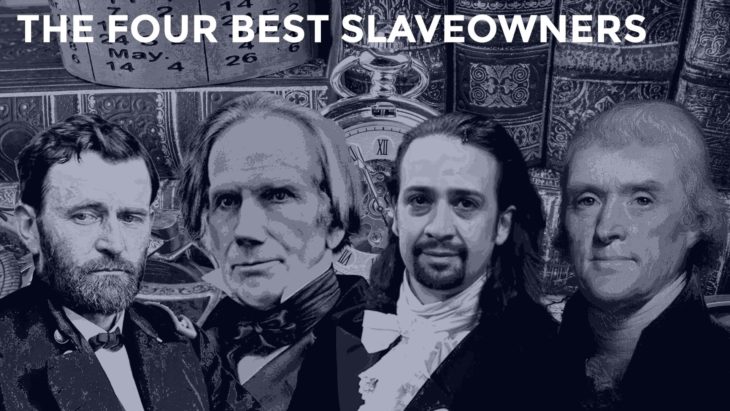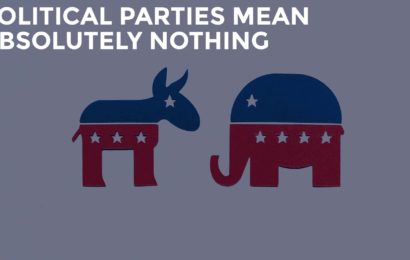
The Four Best Slaveowners
Honorable Mention (Not Technically Slaveowners): Alexander Hamilton
Alexander Hamilton, America’s most thuggish ruggish founding father, did not personally own any slaves. That’s why he only gets an honorable mention. However, he was a capable slave broker – he facilitated the buying and selling of other human beings. That’s definitely a distinction, but I’m not sure it’s actually a difference. I assume he had to explain the difference to his Lord. I’d like to see him talk his way out of that one.
3 – Senator Henry Clay (Whig – KY)
Henry Clay was a Kentuckian and a Southerner for good and for ill. He was brilliant, charismatic, and a slaveowner. He was something of a soft abolitionist. He inherited slaves as a child and owned slaves for his entire life; however, he favored the gradual abolition of slavery. He also helped found the American Colonization Society, which resettled free Black folks in Africa. That’s kind of the story of Henry Clay, a series of Union-saving half-measures.
He helped pass the Missouri Compromise, ended the Nullification Crisis, and helped pass the Compromise of 1850. Each of these laws navigated a middle road between abolitionists and the slaveholders. Black folks took an L on each compromise but they delayed the brewing civil war. What could have easily exploded in 1820 was delayed by Henry Clay until 1860. We never would have survived a civil war with any president but Lincoln. So, on balance, Clay served his nation admirably.
2 – Thomas Jefferson
Thomas Jefferson wrote the Declaration of Indepence, was instrumental in securing French aid during the Revolution, founded the Democratic Party, and advocated endlessly for the dignity of working people. He constrained the power of the federal government in an era defined by kings and emperors.
He sometimes took his small gubbamint thinking too far, such as when he authored the Kentucky Resolution, which argued that states could nullify federal laws they believed to be unconstitutional. This led to the Nullification Crisis and, eventually, the Civil War.
Throughout his life, he owned over 600 slaves and only ever freed nine of them. He believed in the gradual abolition of slavery; preferably, after he’d lived a life of comfort, luxury, and wealth. After his wife died, Jefferson had a long-term “relationship” with Sally Hemings, a slave and his wife’s half-sister. Jefferson allowed two of his and Sally’s kids to flee without formally freeing them, and two more were freed in his will. Weirdly, he didn’t free Sally in his will. Some people would like you to believe this was a consensual relationship; maybe it was by slaveowner standards, but c’mon. An enslaved woman can’t say no. If she can’t say no, then her yes isn’t authentic consent.
1 – Ulysses S Grant
Hiram Ulysses Grant was born into an abolitionist Whig family of Ohio hillbillies, the type of yeoman Thomas Jefferson loved so much. He hated working in a tannery, so his dad petitioned to get him into West Point. Ohio’s Democratic representative didn’t give a damn what some Whig boy’s name was, so he nominated “U.S. Grant” for the military academy. Considering how insanely annoying it is to change your information in a military database in 2022, it must have been a real quagmire in 1839. So, Grant just rolled with it.
Despite being from an abolitionist family, he married into a family of slaveowning Democrats. After the Mexican-American War, Grant was so broke that he had to sell his gold watch to buy Christmas gifts. Around that time, he inherited a slave worth about $1,000 (~$34,000 in 2022). Despite being dead broke, Grant freed that slave.
Pause for a moment and consider that: He didn’t force the enslaved man to work and produce wealth for him. He didn’t even sell his $34,000 man. He was selling firewood out of the back of his raggedy wagon and still kept his values. How much do your values cost? Is it less than $34,000?
Grant went on to win the Civil War, save the Union, destroy the KKK, create Yellowstone National Park, appoint America’s first Jewish governor, and secure some temporary voting rights for Black Americans.
His Native American policy flip-flopped between idealistic and paternalistic and murderous, but that’s a different article.
US Grant is America’s greatest slaveowner because he was a slaveowner for about twenty minutes and sacrificed quite a lot for one man’s dignity.
Tear Down Their Statues?
So, what’s my point? Tear down the statues of these men, scrape their names off every building in America, and damn their memories? No. Slaveowners such as Washington, Jefferson, and Clay caused grievous moral injury to themselves and to their nation. Their wound, festering for four score and four years, nearly proved fatal to the nation in 1860. The United States nearly died due to their moral abdication (in the case of the soft abolitionists) and their immoral greed (in the case of those ardently pro-slavery). So, why should they have statues and not Robert E. Lee?
The answer is simple: Robert E. Lee set his life and his genius to the task of destroying the United States. Had he succeeded, the United States would not exist as a free and prosperous nation. That’s not a man to be celebrated.
Clay, Jefferson, Hamilton, Washington, and the others set their considerable skills to the betterment and preservation of the Union. Their public lives were exemplary and thus, they deserve public acclaim. Their private lives featured abhorrent moral failings, but they were public heroes.
If you live like Jefferson at work and in civic life, you’ll be counted also as a great American. If you live like Jefferson in private, I’m calling the FBI, you sick bastard.






